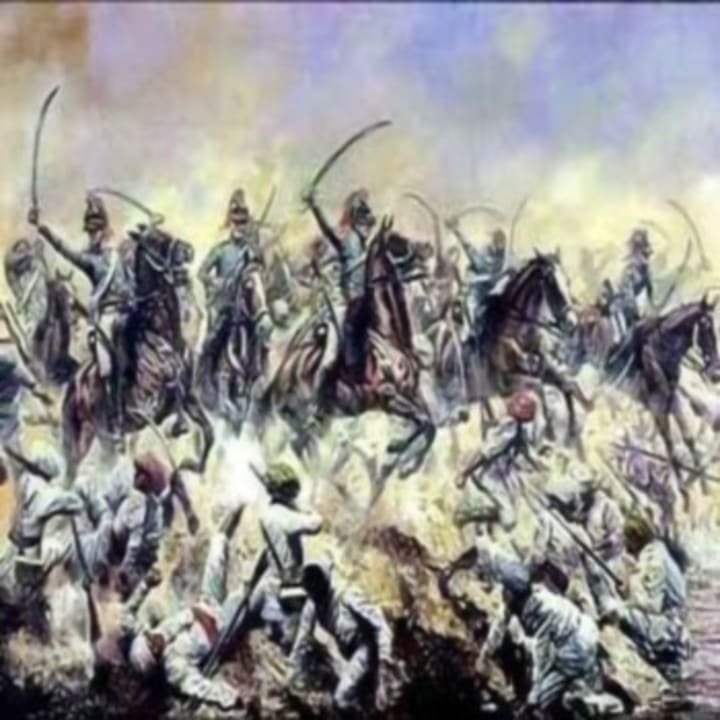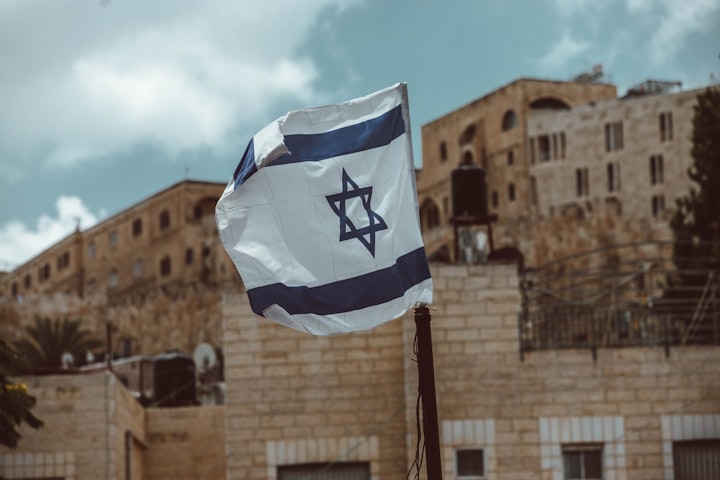
The Mughals had no clear succession policy. This policy has been referred to as" Ya Tahkt, Ya Tabut." It means" Either you have the throne or grave."
When Mughal emperor Shahjahan got sick during the last of his ruling days, his sons started claiming the royal throne. Shahjahan had four sons: Darah Shikoh, Aurangzeb, Murad Bashq and Shah Shuja. Shahjahan used to love his eldest son the most, Dara Shikoh ', and had made him the crown prince while others had made governors of different regions.
When Aurangzeb got the news that Darah Shikoh had become the crown prince, he became angry and sad at the same time. Unlike Dara, Aurangzeb spent his earlier days fighting for the royal throne and successfully controlled various revolts. He was an able military general, tactician, and better administrator than his brothers. In the war of succession, he executed two of his three brothers. The third brother escaped to Burma; a few years after a local leader murdered him. He killed not only his brothers but also executed his son and nephew in the process.
In these wars of succession, thousands got killed. Historians describe battlegrounds as drenched in so much blood they glimmered like fields of red tulips. Aurangzeb did not stop there; he imprisoned his father in the Agra fort. When he killed Dara Shikoh, he presented Dara's head as a present to Shahjahan. His father spent seven years on house arrest before he died in 1666.

Aurangzeb was one such example; Muhammad Bin Tuglaq killed his father Gayasuddin Tuglaq by falling Pavillion gate on him to seize power. Gayasuddin Tuglaq himself came to power after killing his king Kaikabad by throwing him from the building. Their precursor Alauddin Khilji killed his father-in-law by conspiracy. Looking at all these cases, one can argue how inhuman were they? What about morality, ethics, and righteousness? We will try examining these acts by the concept known as power politics from the Machiavellian perspective.
Nicolo Machiavelli was an Italian diplomat, author, philosopher, and historian who lived during the renaissance. In his political treatise, "The Prince"; Machiavelli separated ethics from politics and opened the door for political debate.
Machiavelli argues that history and experience are the best teachers. Machiavelli advises Prince not to care about being held cruel as long as the cruelty is "well used."
According to Machiavelli," Ends justify the means", so the prince should use any tactic through which he gets what he wants.
If you examine the above cases by this philosophy, every person was trying to get power at any cost, whether that cost is even the life of his father, relatives, and others.
Machiavelli further argues about human nature and says, " human nature is completely selfish and full of ego and that they always think about their self-interest like the masses desire safety and security and the ruler wants power, and that they are very selfish to gain and conquer their motives." Thus, Machiavelli advises the prince not to trust his nobles (aristocrats) and advises him to be feared than loved. Let us understand this advice by examining Balban and his Iron and Blood policy.
Ghias ud din Balban (1216 - 1287, reigned 1266-1287) was the ninth Sultan of the Mamluk dynasty of the Delhi Sultanat. Balban ruled Delhi for forty years, the first twenty years as 'Naib' or Prime minister and another twenty years as Sultan. By following his Iron and blood policy, Balban was able to save his kingdom from internal revolts and external invasions. He rose from the low position of water carrier to Sultan by his ruthless methodology. 'Blood and iron' allowed being ruthless to the enemies using all sorts of methods of harshness, strictness, use of the sword, and shedding blood. Let us see some examples of it -
Balban betrayed Razia and engineered a revolt against her, and eventually got her killed.
He dethroned Behram shah and installed Masud as a king. Later he conspired against him too and replaced him with Nasir-ud-din.
He made Nasir-ud-din his puppet and seized all the power from him.
He poisoned several members of the 'Corps of forty' so that they did not dare to conspire against him and finally disbanded them altogether.
After killing a rebel Tughril Khan, the Sultan ordered the killing of all Tughril's friends and rebels. The situation has been described by Lane-Poole as, “Even a beggar to whom the usurper had been kind was not spared.”
According to Barani, “Such punishment as was inflicted on Lakhnauti had never been heard of in Delhi, nor could anyone remember such a thing in all Hindustan.”
Dr.V.S. Smith states, “By royal command, many of the rebels were cast under the feet of elephants, skinned from head to feet… some of them were hungover every gate of Delhi. One had never heard such a tale of terror.
It was the fear of Balban that he was able to provide stability to the empire. He never trusted his nobles which Machiavelli advised in his book later, as he was earlier one of them. Balban knew that fear is more long-lasting and effective than love. What do you think? If he had not committed these cruelties, what were the chances that he could survive? Balban became the Sultan at the age of fifty and ruled till he died at the age of seventy-one.

The nature of power has been cruelling for eternity. As we have evolved from animals, this animal instinct has been the main characteristic of human nature. However, it would be wrong to assume that every act is justified in the name of human nature.
We are not animals anymore and have covered a long journey since then. We have developed a more representative and stable system today unlike the past time of Balban, Aurangzeb, and others, when warfares were frequent and human lives were not precious. Today, we are facing more substantial issues than power-hunger like climate change. It can put human existence in danger.
It is time to create a more transparent, accountable, and equitable government at all levels and countries to ensure human welfare and development. As power has vicious tendencies, its concentration should be avoided at all costs; remember, history is the best teacher for all of us. History teaches us that when power-hungry people were allowed to rule without checks and balances, all they did was a disaster.
If you have found this article meaningful. Consider sharing it with your family and friends. Your appreciation will encourage me to write more of such content.
https://twitter.com/AadeshKumarMish
www.adeshmishra.com
About the Creator
Adesh Mishra
I love to discuss cardinal aspects of our lives which shape our identity, thoughts and behavior






Comments
There are no comments for this story
Be the first to respond and start the conversation.